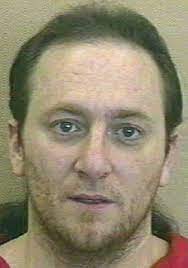Clifton White was executed by the State of North Carolina for the murder of Kimberly Ewing
According to court documents Clifton White would break into Kimberly Ewing home and waited for the woman to come home. When she did she would be sexually assaulted and stabbed to death. White would steal a number of items from her home including her vehicle before fleeing
Clifton White would be arrested, convicted and sentenced to death
Clifton White would be executed by lethal injection on August 24 2001
Clifton White Photos

Clifton White FAQ
When Was Clifton White Executed
Clifton White was executed on August 24 2001
Clifton White Case
Clifton White agrees with those who say that his was a heinous crime. In 1989, after a four-day cocaine binge, he robbed the Charlotte home of 28-year-old Kimberly Ewing, an acquaintance he was staying with. Confronted by Ewing, White tied her up, stabbed her in the back of the neck and repeatedly slashed her throat. The murder was so horrific, White says, that although he remembers part of what happened that night, he still has a hard time believing he could have been so brutal.
“He don’t understand it himself, he don’t know what it was,” says his wife, Barbara White. “He has searched his heart for years. I’ve watched him cry, I’ve listened to him cry on the phone: ‘I don’t know why this happened.'” Likewise, people who know White say it’s difficult to understand how the man scheduled for execution at 2 a.m. Friday could do such a thing.
“The first time I went to see him, I was terrified,” says John Johnson, a UNC-Chapel Hill student who heads the campus branch of the Campaign to End the Death Penalty and has befriended White during about 30 visits to death row. “Then he started cracking jokes and he put me at ease.” Johnson says White spends his spare time drawing and coloring, reading, listening to bluegrass and country music, and joshing with prison guards and fellow inmates. White’s friends describe him as personable and jovial, more like a class clown than a hardened criminal. But his upbringing put him on a tragic course. Teresa Hunt, one of White’s two sisters, says that their childhood was steeped in depravation and violence. Their father was addicted to opiate pills and was frequently suicidal, she says, and their mother was an alcoholic who hit them on a regular basis. Often they fell into the care of grandparents who were emotionally and physically abusive. Once, Hunt says, the White children witnessed a terrible melee, in which their uncle severely beat their mother, and a grandfather stepped in and shot the uncle.
“He was always told, ‘You’re nothing, you’re never going to amount to nothing,'” Hunt says of her brother. “You hear that long enough, and you believe it.” In his teens and 20s, White turned to a life of petty theft, and spent much of his time either in prison or on probation. Still, he kept up a sunny disposition. He helped his sister raise her children, and was always gentle and caring with them, Hunt says. According to White’s friends, he was happiest when he went out dancing.
White’s wife, Barbara, had dated him before the murder and married him in 1990, after he was behind bars. She does not deny the obscene cruelty of his crime, but she says the murder was a tragic aberration for the fundamentally compassionate man she knows. “He was never violent toward me and I never saw him be violent against anyone,” she says. “He never raised his hand to hit me. Whenever there was a fight, he walked away.”
White confessed to his crime, and has expressed shock and sorrow for it ever since. Ewing had a young daughter when she was killed. According to Hunt, her brother “has been remorseful since day one, and he cannot get over the fact that he took a mother away from a child, that this little girl had to grow up without a mother.” White says he’s haunted by what he did. “He’s told me many a time that when he closes his eyes, he sees [Ewing’s] face, and when he wakes up, he sees her face,” says Barbara White.
One of White’s attorneys, Jonathan Broun of the Center for Death Penalty Litigation in Durham, emphasizes that White is “not a monster”–that he’s conscious of the wrong he’s done and sorry for it. Moreover, as his lawyers argued in a clemency petition to Gov. Mike Easley last week, White turned to violence after society failed him–failed to protect him as a child, and failed to provide the help he clearly needed as an adult. “We’re not solving these problems by executing him,” Broun says. “There are legal reasons, and public policy reasons, to spare his life,” Johnson says, “but the biggest reason is the man himself.”
During his 1994 murder trial, White testified that “I don’t deserve to live after what I done.” But now, his wife says, he believes it’s better for the state to let him live out his days in prison than to kill him. “I know the real Clifton, I know the loving man that he is,” Barbara White says. “He’s not an animal, and he’s not one of those one of these prisoners sitting in jail that has nobody. I want people out there to realize that Clifton is loved deeply.”









